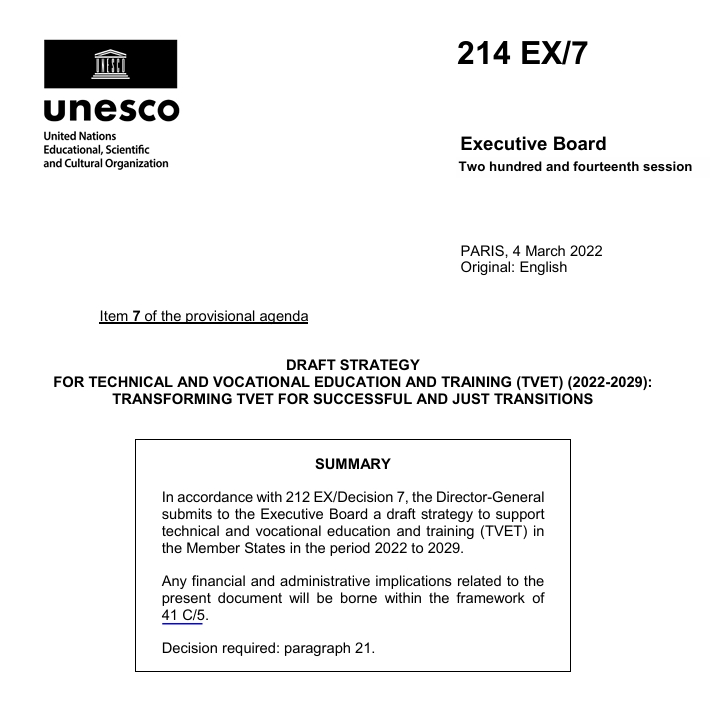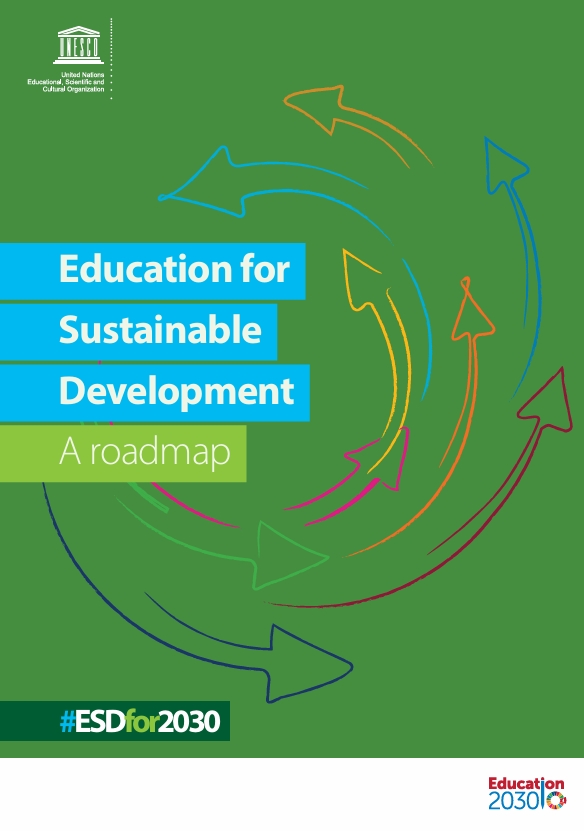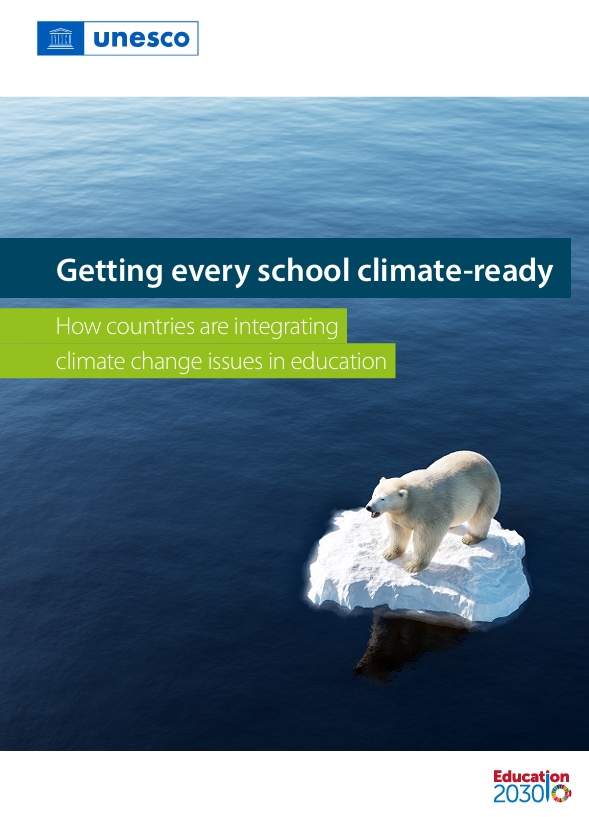1.The COVID-19 pandemic, leading to the largest education disruption ever, has strongly impacted the Technical and Vocational Education and Training (TVET) sector. The closure of education and training institutions has affected learners’ wellbeing and induced learning losses, possibly curving the realization of individual potentials. The consequences on economies and the labour market are also dramatic. While stronger economies have been relatively more resilient to the effects of the pandemic, transitioning faster to new digital modes of working, providing support to companies affected by the crisis, and supporting upskilling and reskilling of workers, less developed economies have been affected by deeper recession, more poverty, and higher unemployment rates, particularly among youth and women.
2.In 2015, UNESCO adopted a Strategy for TVET 2016–2021 aiming to “support the efforts of Member States to enhance the relevance of their TVET systems and to equip all youth and adults with the skills required for employment, decent work, entrepreneurship and lifelong learning, and to contribute to the implementation of the 2030 Agenda for Sustainable Development as a whole.” A final evaluation of the Strategy for TVET 2016-2021, conducted in 2021, found that the Strategy responded to the needs of Member States and the changing demands for TVET.
3.The Executive Board, at its 212th session, acknowledged the achievements, lessons learnt, and implications for the follow-up to the 2016-2021 Strategy and took note of the future directions for the development of a new Strategy for TVET. Pursuant to 212 EX/Decision 7, the Director-General presents, through this document, the highlights of the new Strategy for TVET (2022-2029) (hereafter, the Strategy). Its title, “Transforming TVET for successful and just transitions,” captures UNESCO’s expectation that TVET will make important contributions to recovery and to sustainable development over the next eight years. This new strategic vision for TVET takes into consideration the present and future priorities of learners, societies, and economies, promoting a path to recovery and resilience building in the post-COVID-19 pandemic era. The Strategy is aligned to UNESCO’s 2021 Futures of Education report, calling for a new social contract to repair injustices while transforming the future of education.






